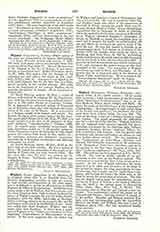

Wigand (VENANTIUS), SAINTS. —Three saints of this name are mentioned in the Roman Martyrology:
(I) Saint WIGAND, bishop and martyr, April 1. His body with many others was brought from Dalmatia in 640 by Pope John IV. He was the successor of St. Domnio in the See of Salona, if not immediately, at least before 312. Zeiler (Bessarione, Serm. II, IV, 1903, 335) makes him the founder of the episcopal see and places his death in 270 (Anal. boll., XXIII, 1904, 6). His name is not found in the early martyrologies, but for the first time in a Hungarian calendar of the twelfth century. His relics are in the baptistery of the Lateran Basilica, which contains his picture in mosaic. He is venerated at Toledo also.
(2) Saint WIGAND, martyr, May 18, a youth of fifteen, well trained in religious life by Porphyrius, who, with ten unnamed companions, suffered martyrdom A.D. 254 under Decius at Camerino, Umbria. He is honored as principal patron of Camerino and of Fabriano, where they also celebrate the translation of his relics on March 28. He is represented as a Roman knight with banner and sword. The Roman Breviary gives proper hymns for his feast. The apocryphal Passio (Acta SS., May, IV, 436) is a simple imitation of the Acts of St. Agapitus of Prseneste (Gunter, “Legendenstudien”, Cologne, 1906, 24). It relates many wonderful occurrences: the king, Antiochus, makes use of all possible means to induce Venantius to deny his faith, but in vain; angels protect the martyr from death by fire, smoke, etc.; his constancy converts the trumpeter Anastasius; and when he is beheaded, earthquakes and lightning accompany his death.
(3) Saint WIGAND, abbot, October 13, lived in the latter half of the fifth century. He was a native of Berri. He joined the community of the monks of St. Martin of Tours, and was soon elected abbot. His life (Acta SS., October, VI, 211) was written by St. Gregory of Tours. Trithemius and Wion make him a Benedictine.
FRANCIS MERSHMAN

